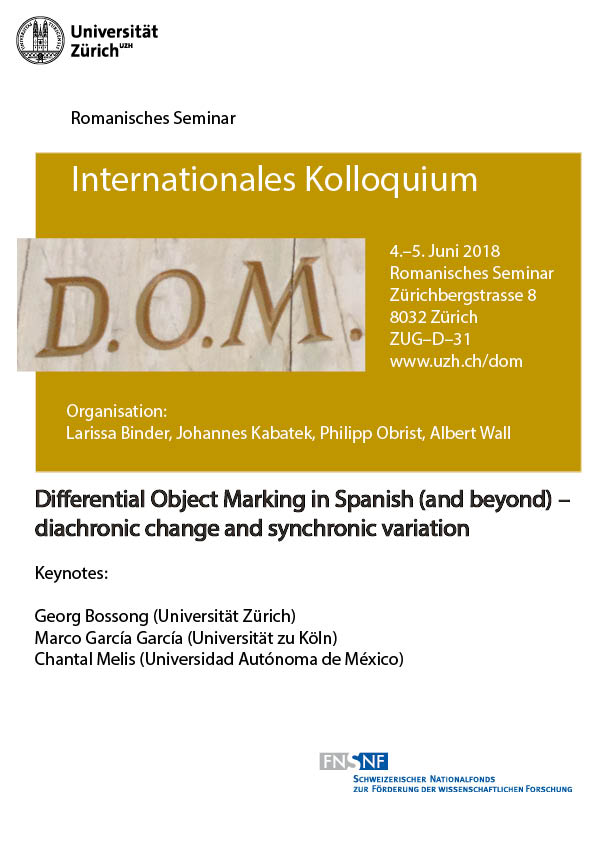Die differentielle Objektmarkierung (DOM) im Spanischen: Emergenz und Tendenzen des aktuellen Systems
Abgeschlossenes Projekt (01.04.2016-31.04.2019)
Zusammenfassung
Spanisch ist aufgrund seiner Bekanntheit und Verbreitung, aber auch durch die wissenschaftsgeschichtliche Entstehung des Terminus DOM (Bossong 1991) eine besonders prominente Sprache, die eine fortgeschrittene Grammatikalisierung der Objektmarkierung aufweist. Doch obwohl das traditionell als „präpositionaler Akkusativ“ bezeichnete Phänomen in der Hispanistik unter vielerlei Aspekten erforscht wurde, herrscht in wichtigen Bereichen weitgehende Unklarheit: Wie und wann entstand das aktuelle System, und was sind die aktuellen Entwicklungstendenzen?
Das Projekt fokussiert die Innovation im Bereich der Empirie (neue Daten), der Methodik (neue Datentypen, neue Visualisierungen) und der Theorie (neue Erkenntnis über typologische Korrelationen zwischen DOM und anderen Elementen). Es wird zu einer neuen Sicht auf ein zentrales Element der spanischen Grammatik beitragen und über die Hispanistik hinaus für die Romanistik und die Typologie neue Einsichten bringen.
Summary
Spanish is a particularly important language for the study of DOM, both due to its many speakers and prominence and its importance for the scholarly description of the phenomenon (Bossong 1991). But despite the high degree of grammaticalization of what is traditionally referred to as "prepositional accusative" and it being subject to studies on many different aspects, there are still major research gaps: How did the current system emerge? In which direction is it currently evolving?
This project focusses on innovation in terms of empiricism (new data), methodology (new types of data, new visualizations) and theory (new findings on typological correlations between DOM and other elements). It will provide new insights about a major feature of Spanish grammar for Hispanic and Romance linguistics and beyond.
Projektleitung
| Prof. Dr. Johannes Kabatek |
Romanisches Seminar |
| kabatek@rom.uzh.ch |
Mitarbeiter
| Albert Wall | Philipp Obrist |
Romanisches Seminar |
Romanisches Seminar |
| albert.wall@uzh.ch | philipp.obrist@uzh.ch |
Hilfskräfte
- Larissa Binder
- Ismail Prada
- Senta Zeugin
